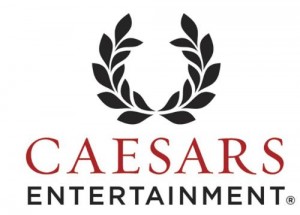Things are looking grim for Florida Gov. Rick Scott‘s case against the Seminole Tribe. An attorney for the state was described as getting “shellacked” by U.S. District Judge Robert Hinkle. The latter zeroed in on the state’s “designated player games” — banked  versions of blackjack. “You’re not going to win that argument; you’re just not,” Hinkle told attorney Anne-Leigh Gaylord Moe, after warning her that in the case of a finding by the court that designated-player games are really house games “then the tribe can keep offering banking games for 20 years.” Also hurting the state’s case was the revelation that a banked game had been approved for a card room in Daytona. Moe tried to pass the buck on the designated-player games, arguing that it was the parimutuel operators themselves who had pushed the envelope.
versions of blackjack. “You’re not going to win that argument; you’re just not,” Hinkle told attorney Anne-Leigh Gaylord Moe, after warning her that in the case of a finding by the court that designated-player games are really house games “then the tribe can keep offering banking games for 20 years.” Also hurting the state’s case was the revelation that a banked game had been approved for a card room in Daytona. Moe tried to pass the buck on the designated-player games, arguing that it was the parimutuel operators themselves who had pushed the envelope.
The state itself has had to rein in parimutuels for offering verboten forms of gambling, cracking down on Isle Casino & Pompano Park, and six others, for providing the precisely the form of designated-player games it now finds itself having to defend in court. Hinkle was unsympathetic, calling the games an “end run around the prohibition” on house games for non-tribal. A Seminole attorney was quick to follow up, asking why the tribe would pay billions for the state for a presumed exclusivity it did not actually enjoy. Hinkle warned that he wasn’t leaning one way or the other but if he rules for the Seminoles he’ll claim a victim: Department of Business & Professional Regulation Secretary Ken Lawson has promised to resign if the state’s case collapses.
* Caesars Entertainment dodged another bullet this week. In the interests of  preserving a fragile, $5 billion bankruptcy settlement, a federal judge has placed an injunction upon a lawsuit filed by Trilogy Capital Management. Trilogy has $9 million worth of skin in the game and wants no part of the proposed settlement. However, that didn’t cut any ice with Judge Benjamin Goldgar, who ruled, “The risk that the Trilogy action will derail the reorganization is too great.” Now Trilogy and other potential litigants will have to twiddle their thumbs at least through January, when the bankruptcy settlement is expected to go before the court. That’s too long for Trilogy, which vowed to appeal.
preserving a fragile, $5 billion bankruptcy settlement, a federal judge has placed an injunction upon a lawsuit filed by Trilogy Capital Management. Trilogy has $9 million worth of skin in the game and wants no part of the proposed settlement. However, that didn’t cut any ice with Judge Benjamin Goldgar, who ruled, “The risk that the Trilogy action will derail the reorganization is too great.” Now Trilogy and other potential litigants will have to twiddle their thumbs at least through January, when the bankruptcy settlement is expected to go before the court. That’s too long for Trilogy, which vowed to appeal.
* Massachusetts‘ casino industry is hardly out of the blocks and already it faces a threat from Treasurer Deborah Goldberg. She has stated her intent to file a bill with next to Legislature to expand the state lottery. If Goldberg gets her way, the lottery will make a play for Millennials but becoming playable on the Internet and mobile phones. “iLottery will make our products more accessible, so we can appeal to younger players while we continue to serve our existing customers,” Goldberg said. The question of
 age verification was simply begged, although “cooling-off” periods for compulsive players have been mooted. (The prospect of being able to analyze individual lottery play also whets state officials’ appetite.) Although the lottery is coming off a highly profitable ($989 million) year, Goldberg pointed to the bogeyman of daily fantasy sports to make her case. “Any good businessperson will tell you that you cannot wait and see how the competition plays out.”
age verification was simply begged, although “cooling-off” periods for compulsive players have been mooted. (The prospect of being able to analyze individual lottery play also whets state officials’ appetite.) Although the lottery is coming off a highly profitable ($989 million) year, Goldberg pointed to the bogeyman of daily fantasy sports to make her case. “Any good businessperson will tell you that you cannot wait and see how the competition plays out.”
The casino industry’s best hope is the sluggishness that prevails on Beacon Hill, where the last Lege fell asleep studying a similar Goldberg proposal. Right now, the casinos aren’t too worried — but gas station owners and convenience store operators are hopping mad. After all, it’s easy to picture how many sales — especially impulse purchases — they’d lose if the lottery went online. In another case of politics makes strange bedfellows, they immediately found support from anti-gambling crusaders like Northeastern University’s Public Health Advocacy Institute President Richard Daynard. He told the Boston Globe, “This is disgusting behavior on Deb Goldberg’s part. Anything that makes it easier for people to bet and lose their money is going to have a disproportionate, adverse effect on poorer people.” One potential safeguard is offered by Michigan‘s online lottery, in which players have to create Internet accounts and deposit money therein before playing, although Goldberg appears to have nothing so sophisticated. Between an online lottery and DFS, Massachusetts should just go whole hog and legalize Internet gambling.
* E-sports could be coming to Macao, as the enclave strives increasingly to appeal to mass-market punters. Macanese regulators haven’t signed off on it but Paradise Entertainment has inked a pact to distribute Inspired Gaming terminals in Macao. The initial offering would be Virtual Horse Racing, to be followed by Rush Football. Inspired has a small Las Vegas presence, offers lottery services in China and has its eye on the Philippines next. As for Paradise — which retained its Macanese casino-operating contracts after selling the farm to International Game Technology — it runs casinos in several Stanley Ho properties, including Casino Macau Jockey Club and Casino Kam Pek Paradise, in addition to maintaining a foothold at Casino Waldo, under Galaxy Entertainment‘s sufferance.

